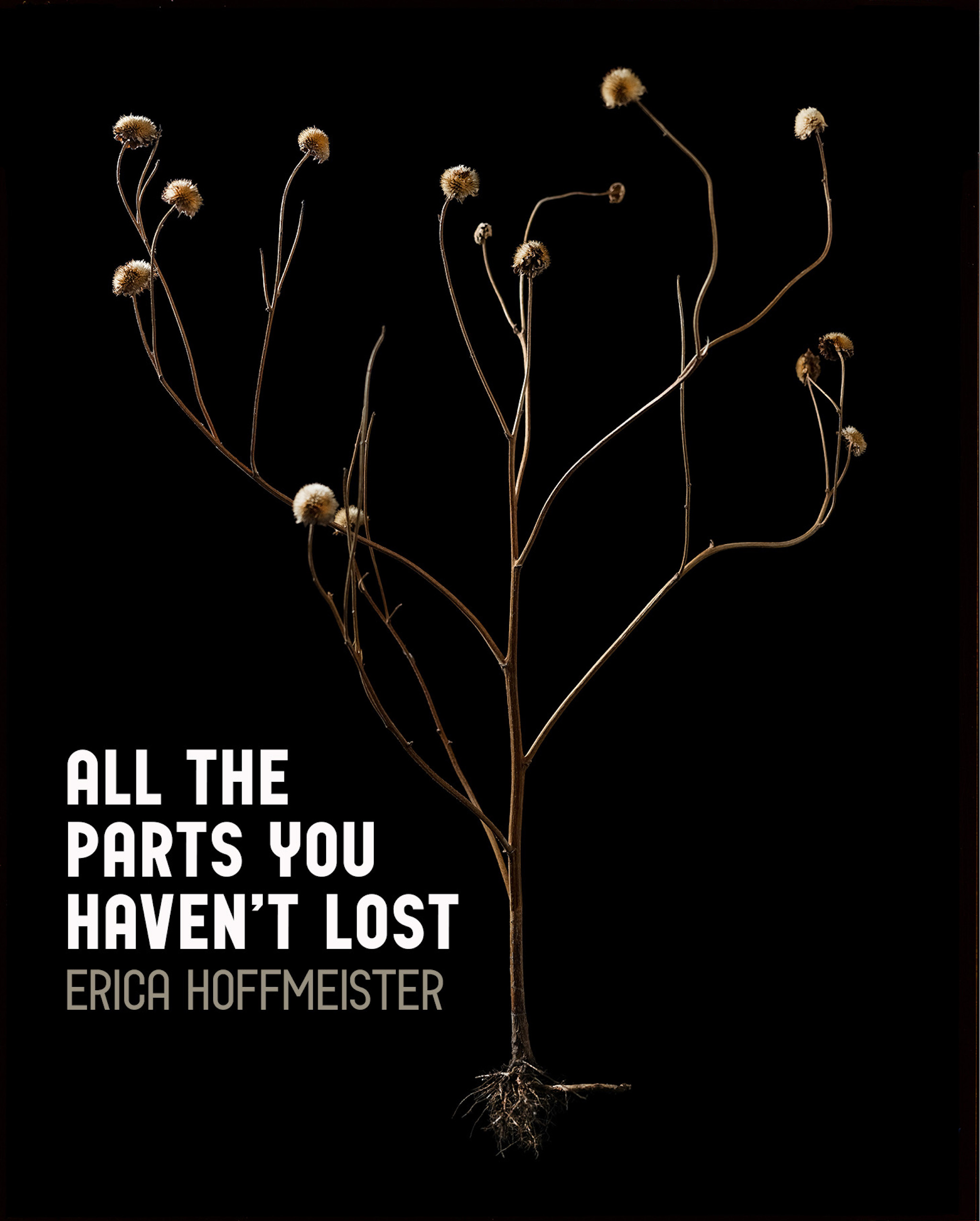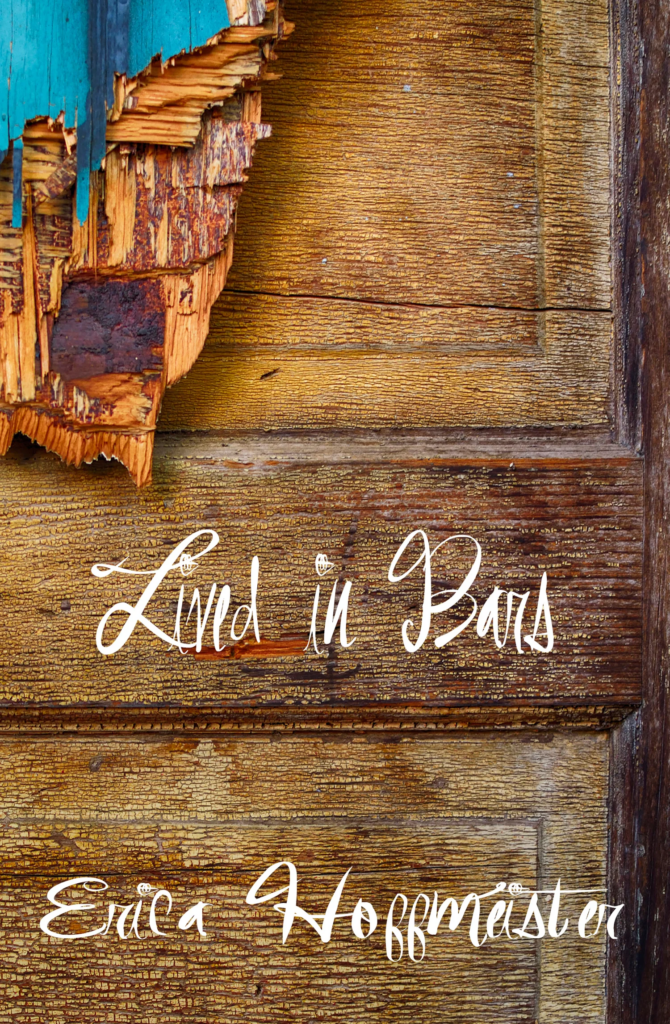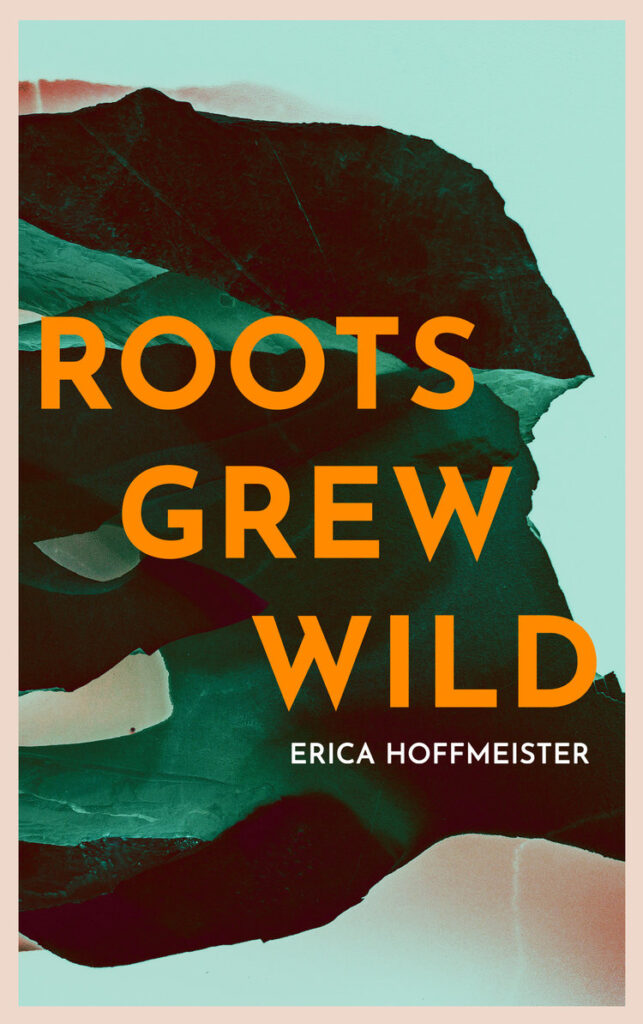All the Parts You Haven’t Lost from ELJ Editions (2024)
 All the Parts You Haven’t Lost is a hybrid collection of poetry and lyrical prose that navigates a violent nosedive into early motherhood, exploring the depths of identity loss and self-perception outside of what a “good mother” is permitted to discuss. By opening frank conversation about depression, body dysmorphia, obsessive compulsive disorder, addiction, sexuality, familial trauma and female rage, these collected works reject the social norms and silence about postpartum mental health issues and offer raw honesty and healing within the collective experience of becoming a mother.
All the Parts You Haven’t Lost is a hybrid collection of poetry and lyrical prose that navigates a violent nosedive into early motherhood, exploring the depths of identity loss and self-perception outside of what a “good mother” is permitted to discuss. By opening frank conversation about depression, body dysmorphia, obsessive compulsive disorder, addiction, sexuality, familial trauma and female rage, these collected works reject the social norms and silence about postpartum mental health issues and offer raw honesty and healing within the collective experience of becoming a mother.
Praise for All the Parts You Haven’t Lost:
“All the Parts You Haven’t Lost is a body of inheritance – where generations of women compound into one—compelling doesn’t cut it, no, within the fragmentary there is intent to gather and display what Hoffmeister already knows intuitively. She summons us to call upon the ancestors, to lay curled within the 80s era quilt of motherhood; and Hoffmeister knows–has already claimed deep wounds and words within stunning sentences to say: ‘This is our maternal tradition, our genetic curse. We’ll be buried in the bodies of our mothers when we die, no matter what we’ve set on fire.’ Readers, remember to breathe. This is an absolute dream.” —Hillary Leftwich, author of Ghosts Are Just Strangers Who Know How to Knock and Aura
“In a love letter to motherhood, daughtering, and the threads that connect all of our past and future selves, Erica turns up the boil slowly until we’re awash in heredity, generational curses, the tension between astrology and astronomy, and the overwhelming joy of making a body from a body.” —Leah Rogin, author of Burying Norma Jeane
Lived in Bars from Stubborn Mule Press (2019)

Erica Hoffmeister’s Lived in Bars is an exquisite road trip across America’s still-feral landscapes and people. The poems are a woman’s experience in lostness and finding: brutal and benevolent, in crisis and of tremendous grit.
Praise For Lived in Bars: “There were certain things you lived with, and certain things you lived without.” Perhaps this taut line best describes the push/pull and lived duality that Erica Hoffmeister writes about in Lived In Bars. There is an urgency to understand the past, home, and lives like that straddle the line of the academic and the tender of the bar, the patron and the daughter, the lover and the one who stands firmly and demands to be loved here, now, in this haze of smoke and with this traveling past. What I mean is Hoffmeister is standing at the edge of the poetic form, at the edge of past and future, at the red rocks in Utah and the wet trees by the ocean in Charleston, begging us to look closer at our seedy underbellies, our histories as they are, our drunken arms open on the road without denial, without shame, with sound and sense and the poetry in everything.” — Tara Shea Burke, author of Animal Like Any Other (Finishing Line Press, 2019)
“Hoffmeister is the ultimate peripatetic wanderer. Part of her journey is because of family circumstances that required continual uprooting. Later, traveling and gathering new experiences, is just what she does. Many of these experiences involved ending up in a bar somewhere, a bar where real people hung out, and live music is being played. There is drinking and sex, bad life experiences and lessons learned. The tone and content of this book is remarkably consistent and plain spoken. You are there, with her, wherever she is (exact geographical co-ordinates are given at the bottom of each page) and you share her life as she lived it.” — Misfit Magazine
Roots Grew Wild from Kingdoms of the Wild (2019)
Winner of the 2018 Chapbook Prize

In Roots Grew Wild Erica Hoffmeister tells the story of a Midwestern family through the perspective of the eldest daughter. Driving the telling in prose poetry is a crisp and distinct voice that lays bare relationships between mother and daughter, father and daughter, as well as the relationship between sisters. Roots Grew Wild is a quiet revelation of the often-harsh nuances the eldest daughter experiences as she comes of age. Themes of family are voiced through sharp imagery and terminology of botany—painting an enthralling psychological landscape that uncovers the layers of societal and familial relationships explored in Roots Grew Wild. Only by returning time and again to the site of the narrator’s favorite tree as her father chops it down with her in it, do we begin to see the pivotal and retrospective symbolic memory essential to the collection of poetry as a whole.
Praise for Roots Grew Wild: “Erica Hoffmeister’s first collection of prose poetry, Roots Grew Wild, manages to achieve what most other themed chapbooks fail to do: tell a complete story arc with lucid imagery and unforced pathos. What is particularly effective is the rhythm of her phrases. While one can fault any poet for verbose language, Hoffmeister’s cadences flow off the page like unspooled ribbon. Thematically, the collection gracefully navigates “hid[ing] from the things we were afraid of” and “discover[ing] the beauty of [saying] goodbye” to painful aspects of upbringing, but also champions the act of becoming—an act that no axe can chop down.” — Sean Woodard, Drunk Monkeys
“Without the space (for breath and/or pause) of traditional stanza structure, prose poetry runs the risk of reading breezily; Erica Hoffmeister’s work merits a more deliberate reading though. In Roots Grew Wild, she intertwines arresting and nurturing imagery from the natural world with the dramatic momentum of her coming-of-age narrative. Though you might need to break out the dictionary to look up some of the more obscure botany terminology, the emotional punch and passion of Hoffmeister’s poetry stays with you. “The Middle” was my personal favorite from this chapbook.” — VIOLETA / GOODREADS

